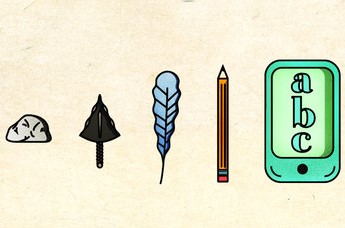So you want to be a teacher. You really want to be a teacher. You couldn’t think of anything else in this world to be besides being a teacher. Just kidding, teaching is an amazing experience and it is extremely rewarding! However, when I graduated college I was terrified! I was always thinking. Where do I start? Do I really know what I am doing here? What does Google say? I can’t breathe. Okay, calm down. Your first year may seem scary but here are 5 tips you can use to help you get organized and get ready!
1. Know What Grade You Will Be Teaching
Your classroom will be based around the grade level you are teaching, so you kind of want it to be age appropriate. Depending on the maturity of your students will reflect on the environment of your classroom. Smaller children (grades K-5) may need a carpet to read on. Older students may not use things like this because it can be uncomfortable for them. I teach 4th grade, and I like to have a large carpet in the front of the class and a smaller one in the back. It’s nice to have when the students want to move around and do their work somewhere other than their desk. Also, think about things that you will hang up on the walls. Make sure you hang up things that you will be teaching that year, such as, a word wall, math concepts, and learning stems. Speaking of ‘what you will be teaching that year’, let’s get into that now.
2. Research Your Grade’s Curriculum Standards
Standards, standards, standards. Everyone has them, whether they’re a teacher or not. But we, teachers, have special standards to follow. Ones that we are held highly accountable for. Knowing your school’s standards will make things so much smoother! Many schools follow the Common Core State Standards which are a guide for what your students should know at a specific time of month and grade level. However, other schools may have their own curriculum, so make sure you follow the standards your school follows! Most schools have a curriculum map. Now, this is something I did not know in college. I spent so much time in my college courses making my own curriculum for a grade. Little did I know that, when I began teaching, team teachers at my school already had a curriculum for me to follow. Already having a curriculum to follow means that planning will be much easier. Just follow the guide, and ask a fellow colleague if you’re confused about anything. This brings us to the next tip.
3. Use Your Team As a Resource
Schools usually group their grades into teams. These teams work together to make teaching smarter, not harder. Don’t be afraid to ask your team members for resources or advice. This, not only, will help you in your classroom, but it will also help you make friends! They have all been in your place before and they all know what it feels like to be a first year teacher. Ask them anything you have a question about. There is no such thing as a dumb question. In my first year of teaching, I didn’t quite know what to send home for homework each day. Of course, we learned about things like this in college, but it’s different when you’re put in charge of your own classroom. This isn’t an assignment to pass the course anymore. I was so embarrassed about asking another teacher what to do. But when I finally found the courage to ask her– she laughed at me. She laughed because that was the first question she asked during her first year. Moral of the story is, ask your team for help, it won’t hurt!
4. Prepare For Your Classroom Management
Boy, if I had a dollar for every time I heard the words ‘classroom management’. But don’t worry. Classroom management is a lot easier to understand once you know how you want your classroom to be ran. Yes, this is the time where you pull out all of those old college papers that you thought you would never use again. Here are some things you will need to put together before the first day of school.
First on the list is classroom rules. Put together about 5 classroom rules that you think are most important in your class. Hang these up and refer to them whenever it is necessary.
Second, classroom procedures. This is how you expect your students to move on from one thing to another. For my 4th graders, I made a PowerPoint. I presented the class rules, how they should come in the classroom, where they should put their homework, how to line up, how to walk in the hallway, how to go to the bathroom, fire/tornado drills, what kind of snacks are healthy to eat, how to sit in the lunchroom, and how to dismiss from school. Sounds like a lot, but trust me, once you have all of this in one place it will forever be useful to you on your first days of school.
Third, classroom jobs. We all have a job to do! Put together a chart of jobs that your students can do to help out around the class. I like having this for the older kiddos too because of their need to stay busy– or lack of.
The entire first week should be spent teaching these rules and procedures. So take your time and make sure your classroom is going to be exactly how you imagined!
5. Finishing Touches
Before that first day of school you want to make sure you have some things in order. Here is a list of things you may want to put together before that day comes:
- Make lesson plans for the first 2-4 weeks
- Create a newsletter that introduces yourself to your students and parents.
- Label EVERYTHING. Place names and labels everywhere so students can find things easily.
- Make sure there is a place for everything (i.e. pencils, backpacks, snacks, Kleenex, etc.)
- Make sure everything works (i.e. computers, Smartboard, projector, etc.)
- Make folders for each student to store records.
- Put together an agenda for each day. This will help you know what to teach and for how long each day.
- Put together a social service to contact parents quickly with. You can use apps, such as, ClassDojo, and Remind.
Teaching can be exciting, overwhelming, and nerve wrecking all at once but it is worth the roller coaster ride! At the end of your first year you will feel what all the other teachers feel that keeps bringing them back the next year. So stay calm, ask for help, get ready, and teach on!
Comment below some tips and tricks you have for a first year teacher!


